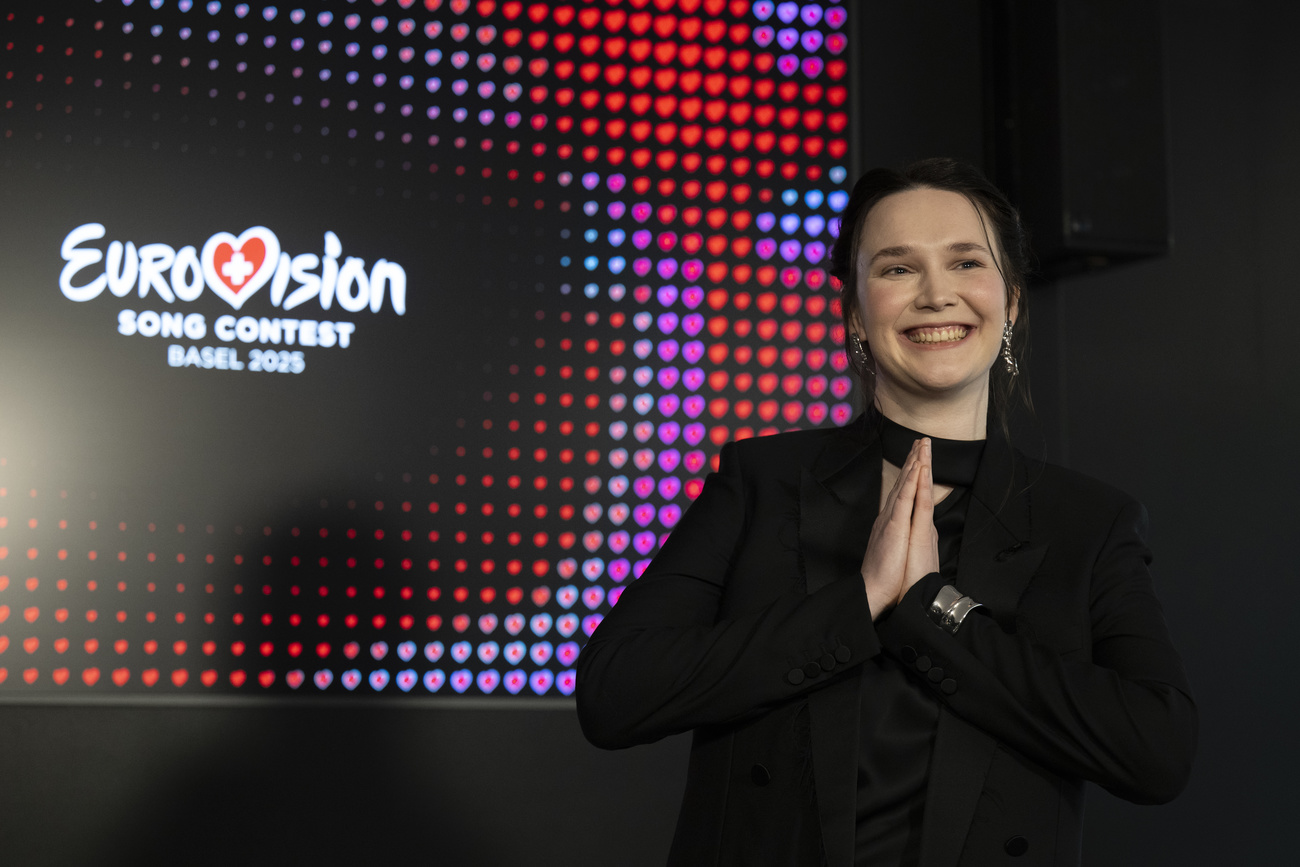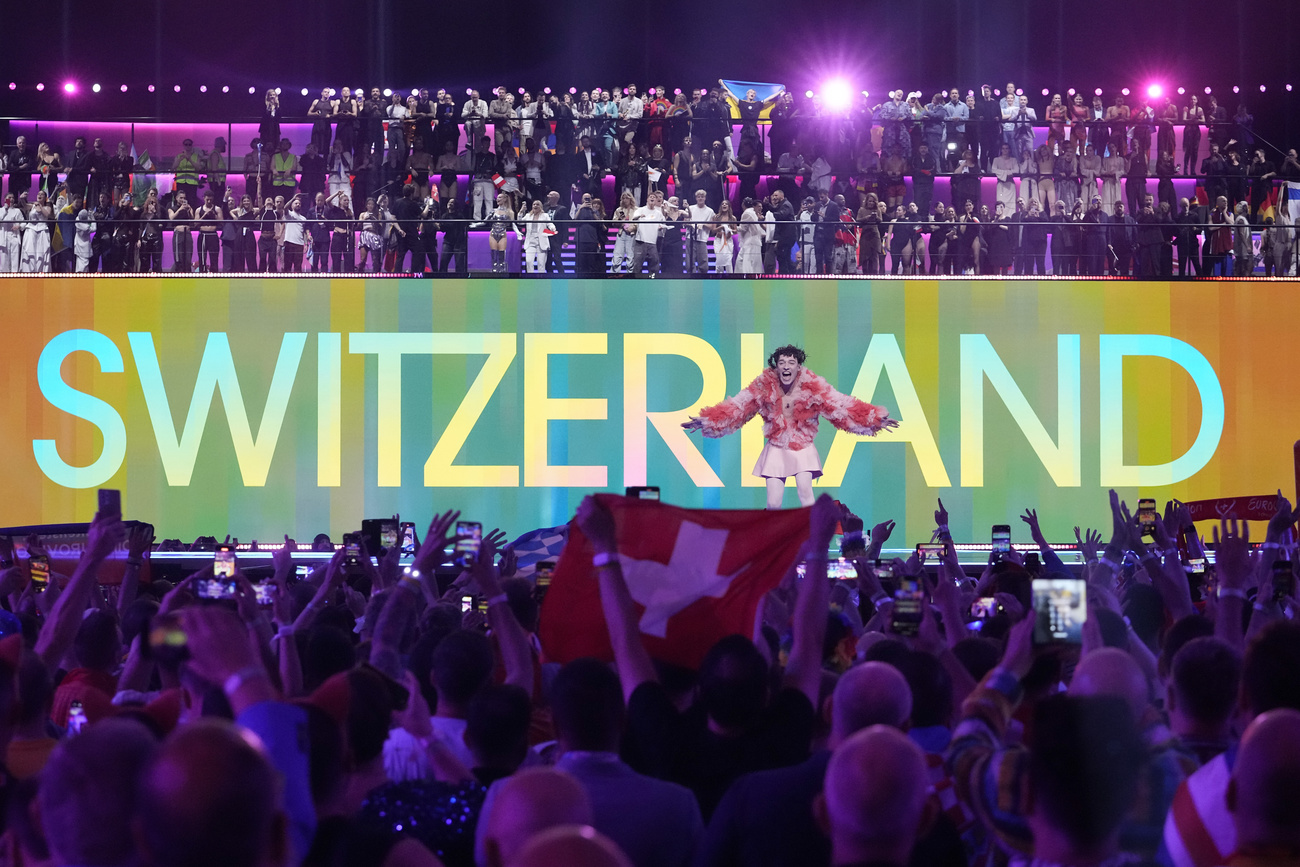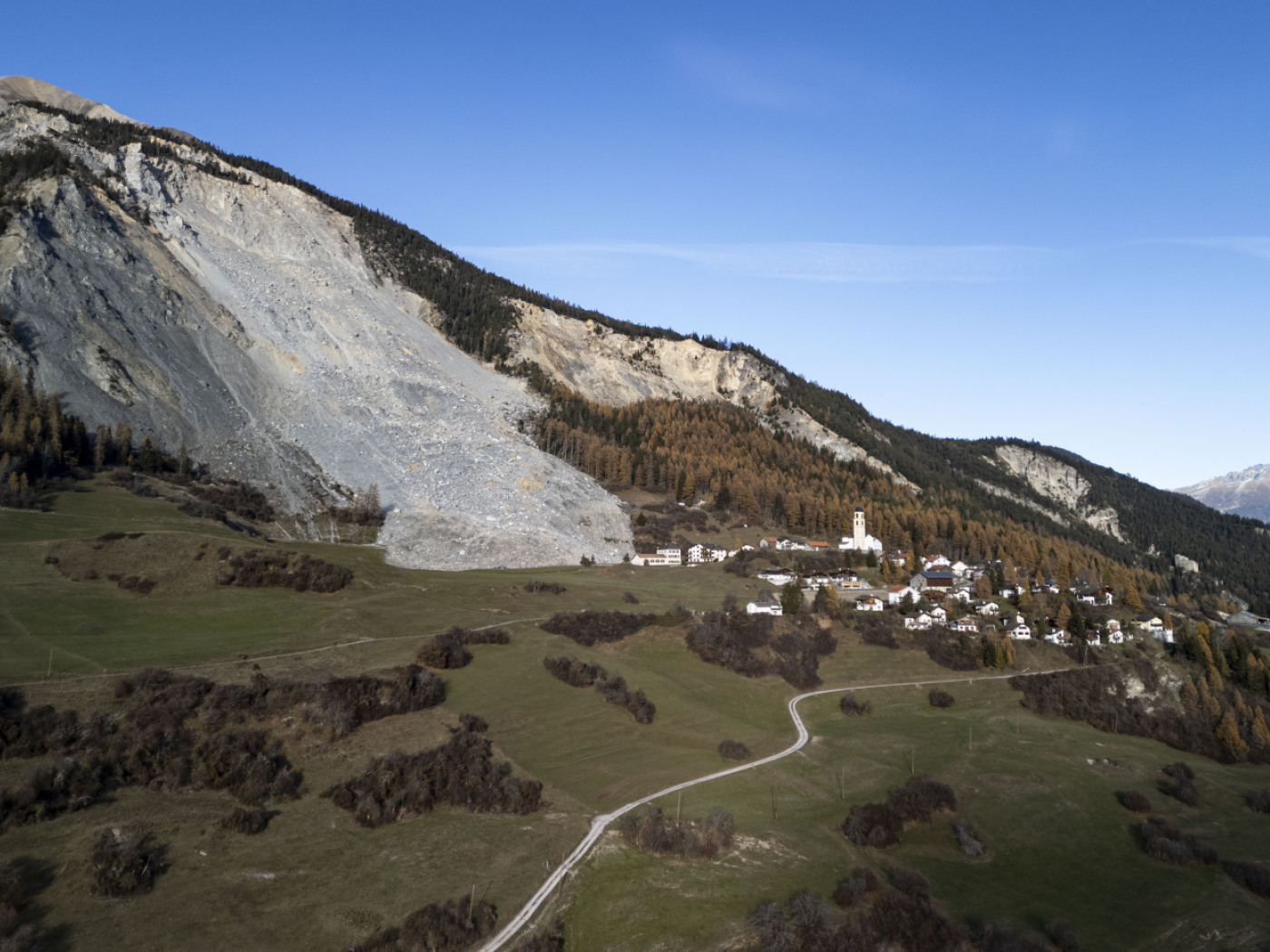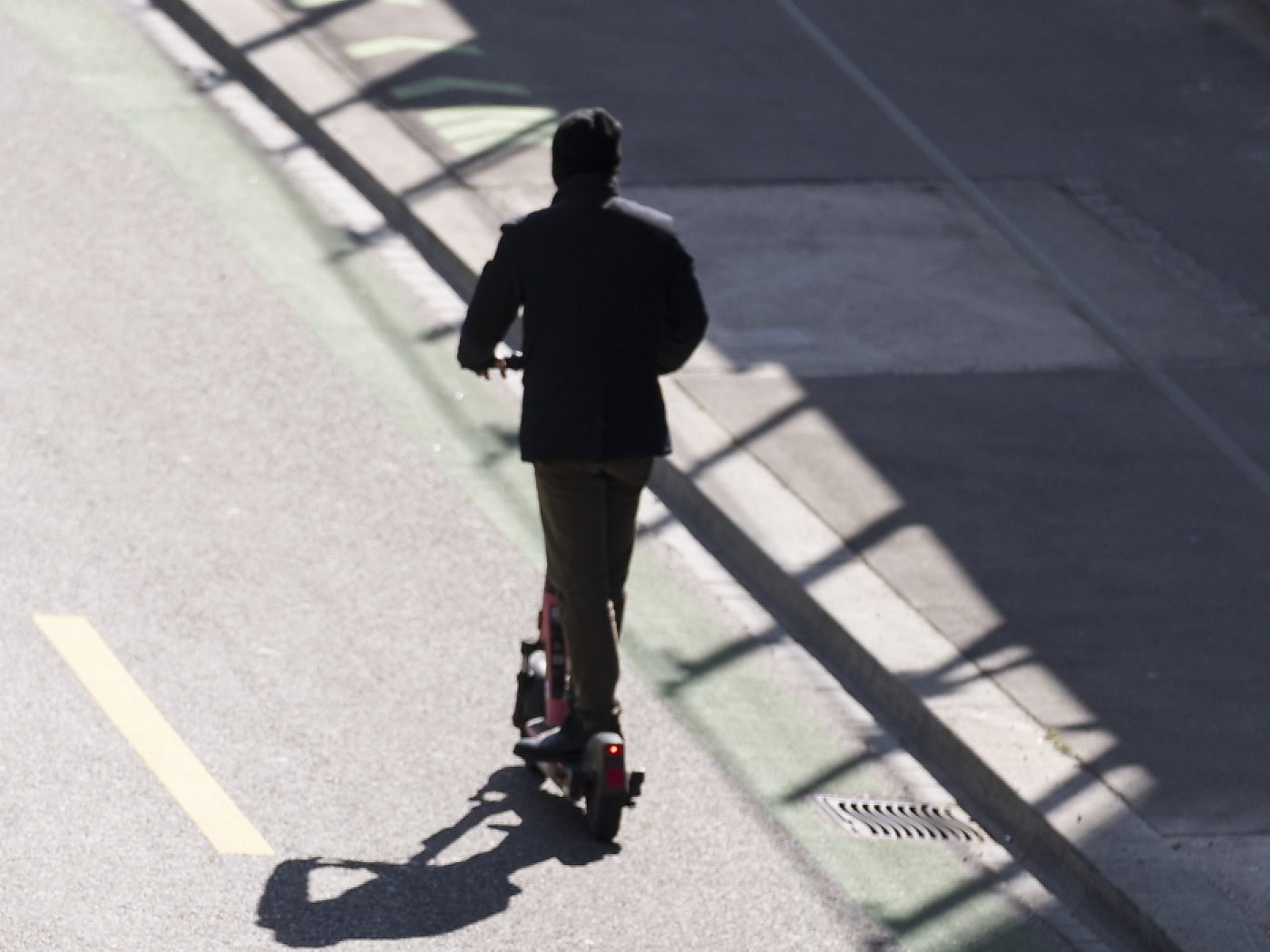Eurovision hits are born at the Suisa songwriting camp

Before the Swiss Eurovision Song Content (ESC) candidate Zoë Më was selected for the home game in Basel, she completed the Suisa songwriting camp. So did some of her predecessors like Nemo or Gjon’s Tears. Is the camp the Swiss recipe for success at the ESC?
+ Get the most important news from Switzerland in your inbox
Zoë Më will represent Switzerland with her song Voyage in May at the ESC. The song was created at a songwriting camp organised by Suisa, the cooperative of authors and publishers of music.
She started in Scotland, the 24-year-old from Fribourg said at the announcement of her song in March. Once she had the first verse, a pre-chorus and chorus, she sent her material to the composer and producer Tom Oehler. The song was completed at the Suisa songwriting camp.
‘Our inspiration was Zoë’
“Zoë came up with a beautiful piano instrumental,” says Scottish co-composer Emily Middlemas, whose stage name is iLi, in a Suisa video. Tom Oehler adds: “I think we were all inspired by the idea she brought with her.” The rest of the song came from the two musicians. “We didn’t have a reference song or a template, our inspiration was Zoë,” says Oehler.

More
Swiss singer Zoë Më unveils song ‘Voyage’ for 2025 Eurovision contest
Suisa has been organising the songwriting camp since 2017. Since then, a total of eight songs with which Switzerland entered the Eurovision Song Contest have been written at the camp. This includes the song The Code, with which Nemo won last year in Malmö.

More
Switzerland wins Eurovision Song Contest 2024
Not only did a song from the Suisa songwriting camp make Switzerland the winner of the world’s biggest music competition; six of the entries written at the camp made it to the final. “Before the songwriting camp, the Swiss selection rarely reached the final,” said Erika Weibel, project manager at Suisa, to the Keystone-SDA news agency.
In addition to Nemo, the Fribourg singer Gjon’s Tears also attended the Suisa Songwriting Camp. The result is Répondez-moi. The song was selected for the 2020 ESC, which was then cancelled due to the pandemic. A year later, he returned with Tout l’univers: a song he had written at an earlier camp but reworked remotely. He made it to third place with it.
Zoë Më has known her predecessor for some time. She met him in 2018 at the Gustav Academy, which promotes up-and-coming talent from all over Switzerland. At the announcement of her song Voyage, Zoë Më also said that Gjon’s Tears was a good colleague and that she was immersed in the world of the ESC when he competed for Switzerland at the ESC.
ESC song forge beyond the borders
ESC songs have also been created for other countries through musical collaboration during the songwriting camp, as Weibel explained. For example, Germany’s entry Sister (2019) or the song Amen, which Austria entered in 2021.
So are songwriting camps a guarantee of success for Switzerland? They certainly weren’t invented in the country. In the international pop music industry, they have long been an established way of producing hits. Countries such as Sweden and England, where songwriting camps are commonplace, are likely to have inspired Switzerland.
The biggest advantage of such a format is that it brings together musicians who would otherwise never have worked together, said Pele Loriano, artistic director of the Keystone-SDA camp. “The most important thing is that you have the right people when you write a song for the ESC. You have to choose the right writers and producers for the artist,” he told Keystone-SDA.
The path from the camp to the big ESC stage goes through a selection process: Once the camp is over, the young talents can propose their songs to the Swiss Broadcasting Corporation (SRG) and the jury for selection for the ESC. Zoë Më is said to have already taken part in the selection process with Nemo and came second behind him, as reported in a video clip from L’info Décryptée on French-speaking Swiss public television RTS.
The jury did not know which songs were created in the songwriting camp, as Erika Weibel said: the song Boys Do Cry with which Marius Bear represented Switzerland at the ESC 2022, for example, was not developed in the camp laboratory.
Almost 145 pieces in eight editions
Some 165 musicians have taken part in eight camps. Around 145 songs were created in the camps – but only around 30 were published. The artists themselves decide whether they want to use a song, explained Erika Weibel.
The fact that the ESC is being held in Switzerland this year naturally pleases Suisa. However, the pressure on the camp, which takes place in June, is likely to increase as a result. Erika Weibel therefore hopes that the “magic of the encounter”, which stimulates new song ideas, will continue to be there.
Translated from German by DeepL/jdp
This news story has been written and carefully fact-checked by an external editorial team. At SWI swissinfo.ch we select the most relevant news for an international audience and use automatic translation tools such as DeepL to translate it into English. Providing you with automatically translated news gives us the time to write more in-depth articles.
If you want to know more about how we work, have a look here, if you want to learn more about how we use technology, click here, and if you have feedback on this news story please write to english@swissinfo.ch.

In compliance with the JTI standards
More: SWI swissinfo.ch certified by the Journalism Trust Initiative


















You can find an overview of ongoing debates with our journalists here . Please join us!
If you want to start a conversation about a topic raised in this article or want to report factual errors, email us at english@swissinfo.ch.